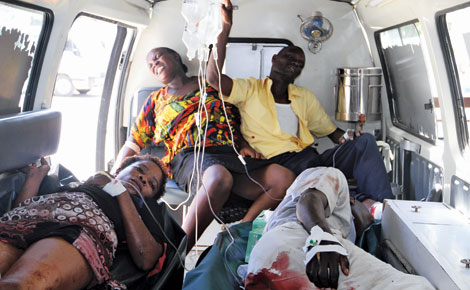×
The Standard e-Paper
Kenya’s Boldest Voice
 |
| Survivors of the Likoni church terror attack, Mombasa, inside an ambulance. The were admitted to Coast General Hospital. [PHOTO: MAARUFU MOHAMED/STANDARD] |
By WILLIS OKETCH and CYRUS OMBATI
Mombasa, Kenya: Several of Kenya’s most notorious terror suspects are roaming free after they were released by court pending the hearing of their cases, and police fear they could be planning more deadly attacks.